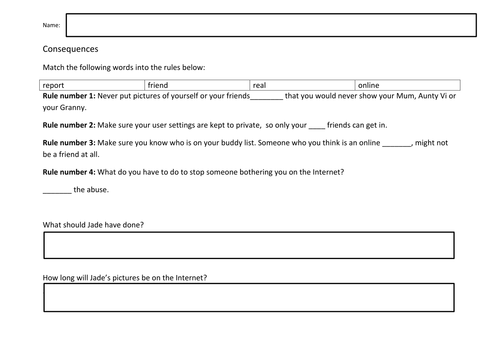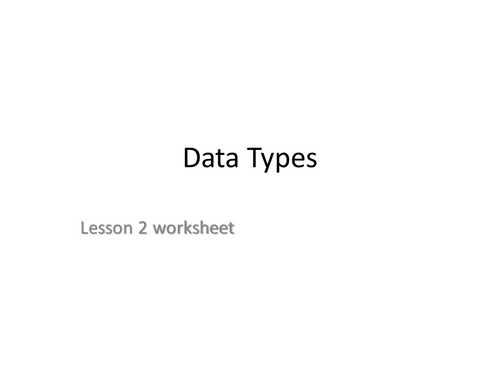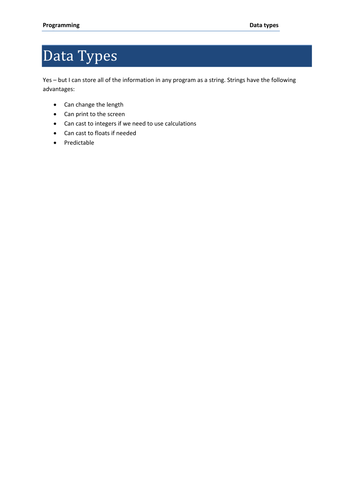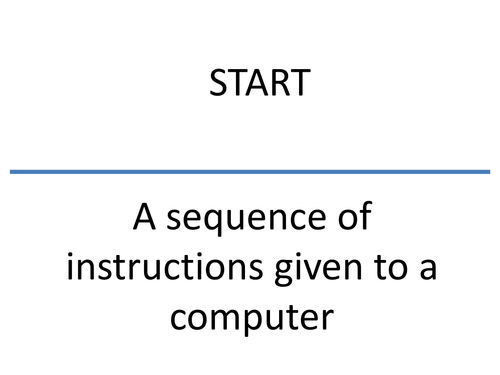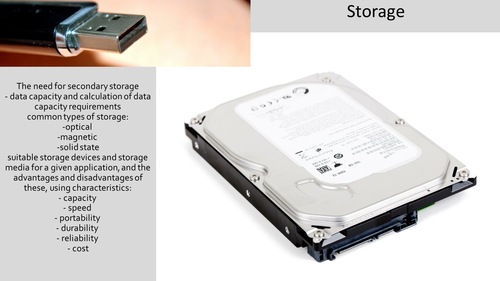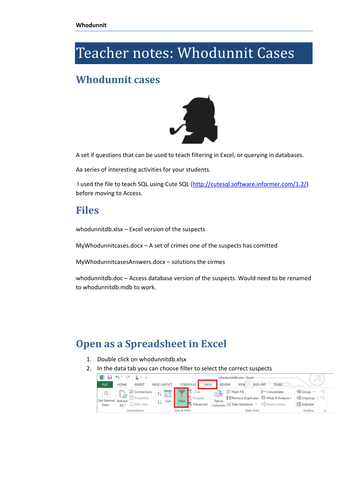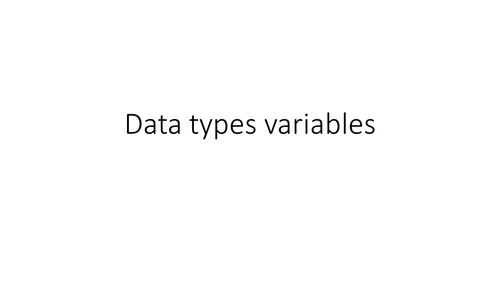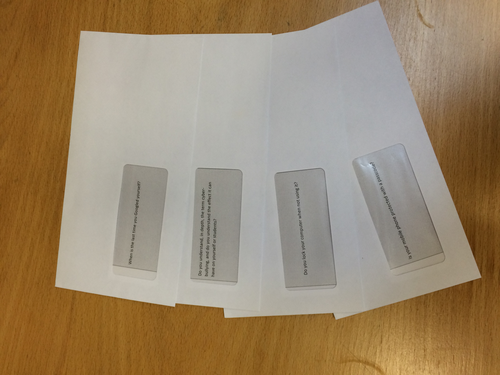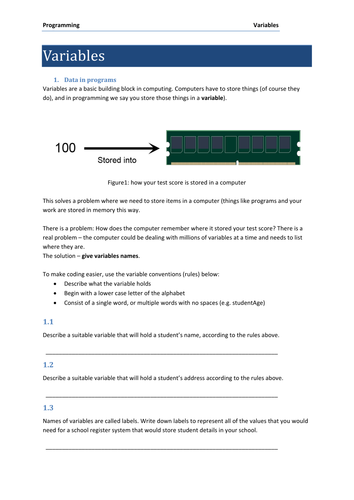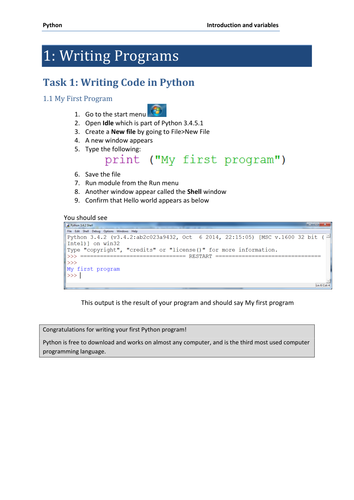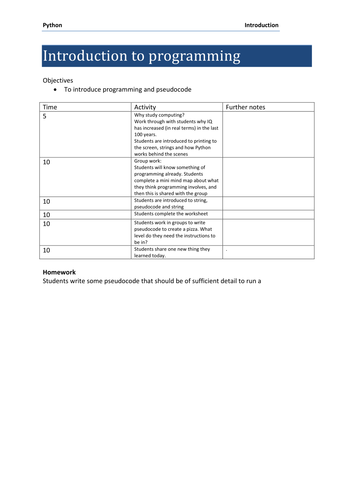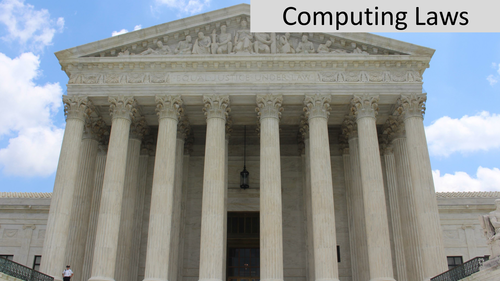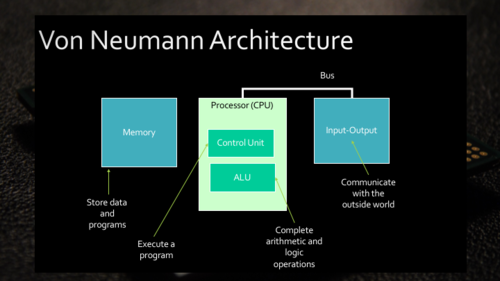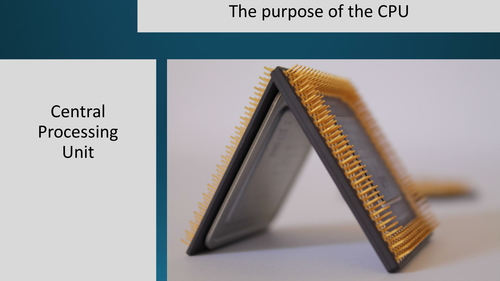
546Uploads
228k+Views
80k+Downloads
Computing

Dangers of Social media for KS3
Full lesson including lesson plan for the dangers of social media (KS3).
Fixed problem with first video.

Data types practical for GCSE Computer Science using Python
Teaches students about data types including integer, boolean, float and casting.
The full lesson includes booklet and homework.
Practical session based around a 60 minute lesson.
This resource uses Python version 3.x

Data types theory for GCSE Computer Science
Teaches students about selection. The full lesson includes worksheet, starter, plenary and homework.
This resource is not based on any particular programming language, so is applicable for any particular language you choose.

Ethics debates for AQA GCSE Computer Science 9-1 8520
A PowerPoint presentation with over 100 ethical and legal debates for AQA Computer Science 9-1 (8520)
Investigate and discuss Computer Science technologies while considering:
ethical issues
legal issues
cultural issues environmental issues. privacy issues.
Written by subject specialists, with in depth debates that are relevant to students. Content covers AI, automation, gaming, privacy, hacking, security, cloud services, piracy, copyright, algorithms, emerging technology, wearable technology and more!
The pack includes a voting card that you may choose to use for students to vote, or students can move from one side of the room to another.
A great resource that can be used for starters or plenaries, and can also become the basis of an entire lesson.

Binary lesson for computing KS3
Full lesson includes poster and activities including starter and worksheet

Selection practical for GCSE Computer Science using Python
Teaches students about selection. The full lesson includes booklet and homework.
This resource uses Python version 3.4

Storage Lesson for OCR Computer Science
Complete lesson for Storage. Designed for OCR Computer Science (9-1) J276 but is more than useful for Computer Science students studying AQA and other exam boards.
Contains a PowerPoint presentation, and two worksheets.
Contains everything the students need to know:
- the need for secondary storage
- data capacity and calculation of data capacity requirements
common types of storage:
-optical
-magnetic
-solid state
suitable storage devices and storage media for a given application, and the advantages and disadvantages of these, using characteristics:
- capacity
- speed
- portability
- durability
- reliability
- cost

GCSE Computer Science 9-1 - Legal Revision for OCR
For the AQA GCSE 9-1 OCR Specification.
Contains tasks for revision around the computing legal requirements for businesses.

Database Queries and Excel filtering in KS3 Computing
A set if questions that can be used to teach filtering in Excel, or querying in databases.
A series of interesting activities for your students to teach them these fundamental concepts in computing.
I used the file to teach SQL using Cute SQL (http://cutesql.software.informer.com/1.2/) before moving to Access. Instructions provided.

Variables concept for computing (KS3 and KS4)
A great plan for variables in computing. TESPlan.docx gives a lesson plan that guides you through the following:
- VariablesTES is the main presentation to explain variables.
- Data types variables introduces data types and has an exercise for students to complete (worksheet is VariablesDataTypes
- Code Scramble has questions for off computer work related to variables
- VariablesProgrammingTask has a set of questions (not programming language dependent) for students to complete
This lesson is not dependent on a particular programming language.
It is a set of activities and a presentation to help students with this important concept in computing.

eSafety discussion task
eSafety discussion task.
Each comment has a surprising addition.
To use this use envelopes with a clear window (as in the images Envelopes.jpg and Envelopessecond.jpg show).
Students then follow the following instructions.
We are going to order the questions in the envelopes from most to least important.
Leave them in their envelopes for now
1. Do you think the question is relevant (in turn)
2. Why do you think that your question might be regarded as important (in turn)
3. Order
4. Remove from envelopes to see additional information. Does this change your mind?

Variables theory for GCSE Computer Science
Teach students about variables. They study assignments and make sure that the variables are printed to the screen, using a variety of paradigms.
This resource is not based on any particular programming language, so is applicable for any particular language you choose.

Introduction to programming practical for GCSE Computer Science using Python
Introduction to programming using Python (3.4)
Suitable for GCSE level students includes worksheet tasks and homework.
This lesson covers sequence, operators and output.

Introduction to programming theory for GCSE Computer Science
Teach students about programming . They study basic strings and how computers store and manipulate data.
This resource is not based on any particular programming language, so is applicable for any particular language you choose.

20 GCSE computer science plenaries for OCR GCSE (9-1) J276
20 quick-fire plenaries for GCSE computing for OCR GCSE (9-1) J276.
Saves hours of work; particularly when purchased as part of the bundle GCSE computer science without the planning.
GCSE Computer Science for OCR (9-1) J276 lessons without the planning.

OCR - (9-1) Computer Science GCSE - Legislation - Law
A 30 slide presentation covering everything needed to know about the -
Data protection act
Computer Misuse act
Freedom of Information act
Copyright, Designs and Patents Act
Creative Commons

Google webquest
A web quest that can be used as a self-directed activity for students to help their proficiency in using Google.

Von Neumann
Lesson presentation for the Vonn Neumann architecture. Designed for OCR Computer Science (9-1) J276 but is more than useful for Computer Science students studying AQA and other exam boards.
Contains the PowerPoint presentation (complete with diagrams)
Contains everything the students need to know:
Basics of the Von Neumann architecture.
MAR (Memory Address Register)
MDR (Memory Data Register)
Program Counter
Accumulator

The purpose of the CPU Lesson GCSE Computer Science for OCR
Complete lesson for the purpose of the CPU. Designed for OCR Computer Science (9-1) J276 but is more than useful for Computer Science students studying AQA and other exam boards.
Contains a PowerPoint presentation, and three basic worksheets.
Contains everything the students need to know:

Von Neumann Revision Pack for OCR Computer Science
Complete revision pack for the Vonn Neumann architecture. Designed for OCR Computer Science (9-1) J276 but is more than useful for Computer Science students studying AQA and other exam boards.
Contains a revision booklet for the students, and four worksheets.
Contains everything the students need to know:
Basics of the Von Neumann architecture.
MAR (Memory Address Register)
MDR (Memory Data Register)
Program Counter
Accumulator

